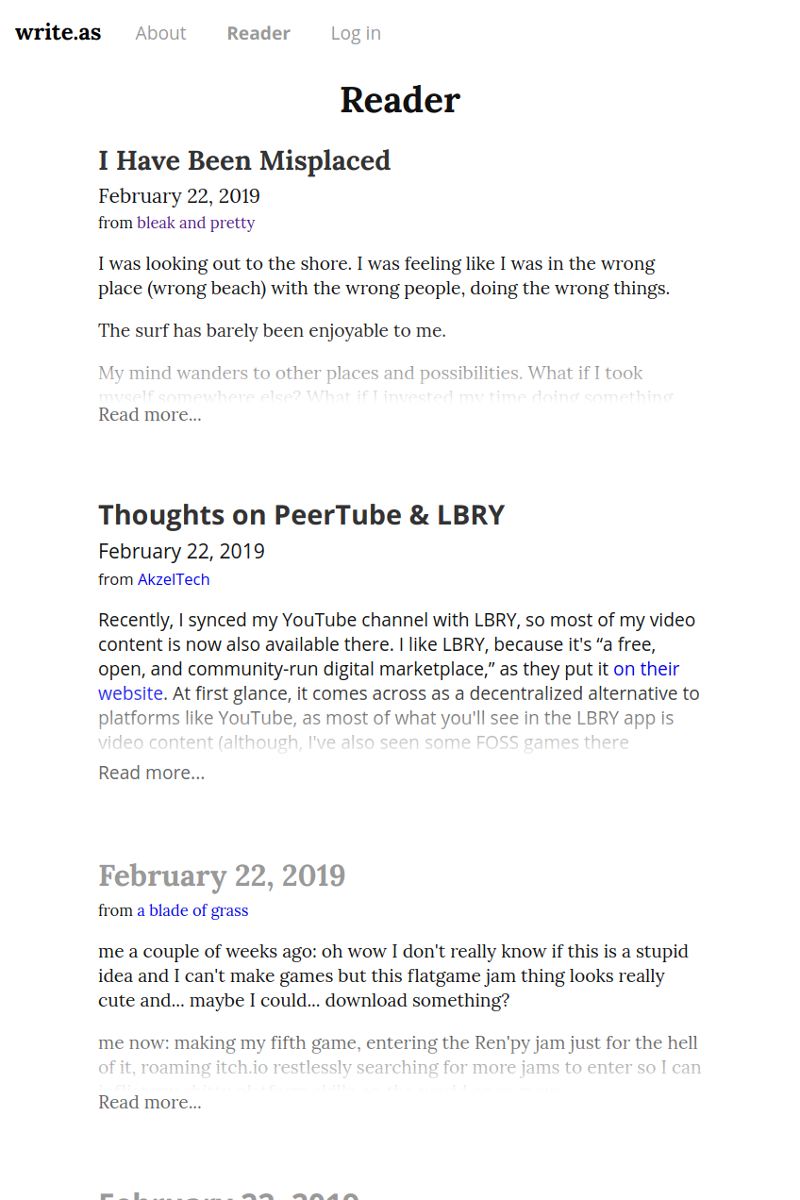As more of our lives move online, we become dependent on large services with millions (or billions) of users to communicate with each other. Although we tend to notice problems only when these platforms change a policy, erect a paywall, or suffer a data breach, we can often feel how these mass-broadcast platforms don't always have our best interests in mind and often don't "connect" us in the ways they purport to.
However, over the past few years, we've also seen a renaissance of small, close-knit online communities. New protocols for building federated social networks, like ActivityPub, are seeing more use, popularized by open source platforms like Mastodon. People still gather on forums to discuss their interests with like-minded people. And even on the large, centralized services, many people use "group" features to have more intimate conversations than they would by sending their latest status update to a wide swath of unrelated people.
In the blogging world, we've also seen platforms like Medium and Tumblr become more popular, partially because of the networks they offer. With these large platforms, each blog is no longer an "island," but part of a huge community. Yet, like any other closed-source, centralized service, if they make a change that doesn't benefit their users, we're forced to find another platform. That's why I built WriteFreely.
WriteFreely is an open source, federated blogging platform. Being open source means you can host it yourself and modify it to fit your needs. Being federated means it can interact with other nodes in the ActivityPub-powered Fediverse, allowing you to join and form larger networks from smaller, more intimate communities. If you start your own WriteFreely community, you can set the tone and rules for it, attracting other like-minded people and building the kind of gathering you want to see online, instead of relying on larger services to do this for you.
There are many reasons you might want to start your own community. You could create one for your family, giving parents and siblings individual blogs instead of using Facebook to share news with each other. With the built-in Reader, everyone's updates can be shared and read in a single stream on the site.

If you already run a Mastodon instance, you could complement it with a long-form blogging site. Then, thanks to its ability to speak ActivityPub, users on your Mastodon instance and the wider Fediverse can follow blogs on your WriteFreely instance and receive posts directly in their social feed, where they can boost or "favorite" posts they enjoy.
You could also start a community for your company or organization to share knowledge among employees or with the outside world. WriteFreely allows you to configure how open your community is, so it's useful even for completely private situations where you might not want your blogs to connect to the wider world.
These are all ways WriteFreely is already being used today.
To start a community, you'll need a virtual private server (VPS), some experience with the command line, and a little time. Installation involves downloading the latest compiled release to your server, configuring the application, and making it accessible to the outside world.
WriteFreely's Getting Started guide walks you through the installation process. Since it was built with Go (golang), most of the application is contained in a single executable. No external dependencies are needed—you can even store all your data in an SQLite database, thanks to the embedded functionality.
Over the past several months, we've heard of very few problems with installation, even from less-experienced users. Many of those more familiar with DevOps have said that the process was actually enjoyable.
But for those who either don't know how (or don't need) to self-host, two services make it painless: WriteFreely.host for starting a community, and Write.as for publishing individual blogs. Both services run on WriteFreely, and all revenue goes toward the people developing the project to make it sustainable for the long-term.
Overall, I want to see more people expressing themselves online, and especially doing it in more human ways that connect us—enabling us to enjoy some of the Web's original promises. I hope to accomplish this with WriteFreely, so please let me know what you think along the way!







Comments are closed.